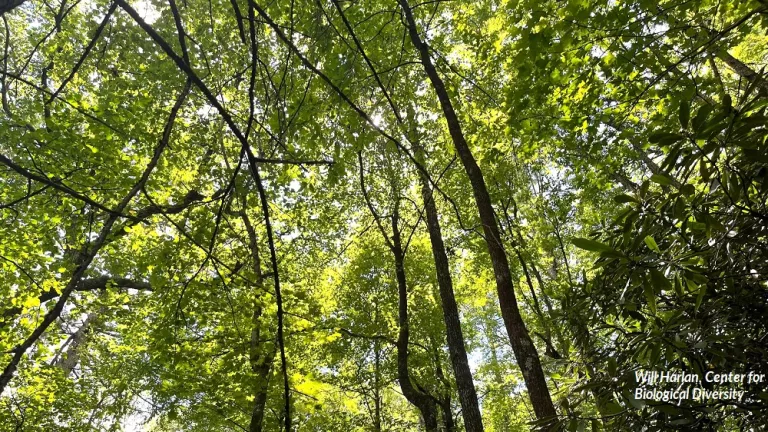A coalition of conservation groups sent a letter to the U.S. Forest Service this week, asking the agency to amend the Nantahala-Pisgah Forest Plan due to the tremendous damage Hurricane Helene did to North Carolina’s Nantahala and Pisgah National Forests.
Hurricane Helene devastated much of western North Carolina. In some areas, 30 inches of rain fell over three days, washing out roads and bridges, and causing landslides and floods. Wind speeds in some places topped 90 miles per hour.
The impacts of Helene are obvious in the Nantahala and Pisgah Forests, where the extremely strong winds toppled thousands of acres of forest. The Forest Service estimated the hurricane caused around 117,000 acres of vegetation loss across the two forests.

The Nantahala-Pisgah Forest Plan, which guides the long-term future of the forests and was published in March 2023, dramatically underestimated the amount of natural disturbance that would happen in these forests. Despite warnings from conservation groups, the Forest Service assumed just 280 acres of forest would be impacted by wildfires, storms, and landslides each year. That means, relative to the agency’s estimations, Helene caused 418 years’ worth of natural disturbance in a single day.
Federal law requires that forest plans be amended when conditions on the forest have “significantly changed,” and in their letter, conservation groups explain that amending the Nantahala-Pisgah Forest Plan would allow the Forest Service to ensure rebuilding efforts are done in a way that strengthens our forests and the communities that rely on them. The groups also urged the agency to lower its logging objectives. The current Plan includes a five-fold increase in logging to replace supposedly “missing” natural disturbances, which Helene showed is unnecessary.
Read the full release on SELC's website
"The severe impact of Helene on our two national forests presents yet another opportunity for the Forest Service to correct its flawed planning assumptions and inflated timber objectives,” said David Reid, National Forests Issue Chair for the North Carolina chapter of the Sierra Club. “The question is, will the agency itself recognize this obvious need, or will it plow ahead despite the largest red flag in our lifetime?”